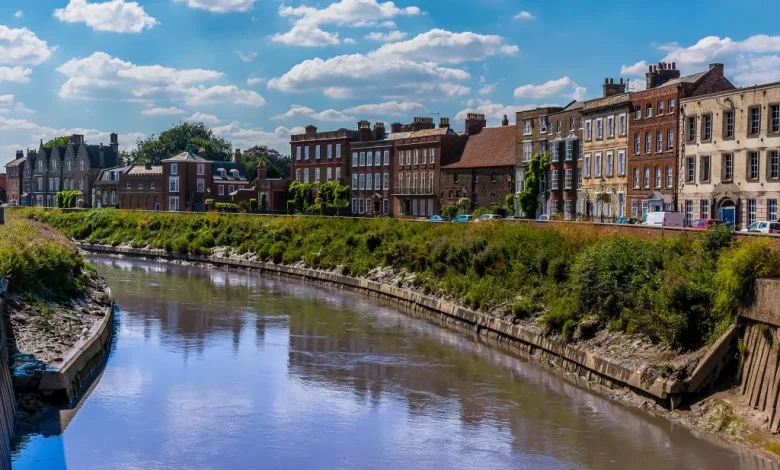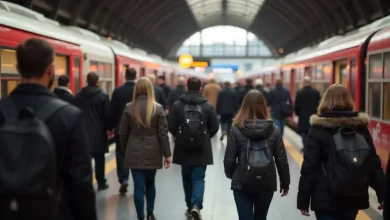Cambridgeshire divided over two-way split

A majority of councils across Cambridgeshire support the creation of two unitary authorities but disagree on what the boundaries would look like.
There are five options being proposed ahead of the 28 November deadline for local government reorganisation (LGR), three of which propose creating two unitaries whilst two newly-added plans want to create three.
Cambridgeshire CC last week voted to support a North West/North East split – and a majority of district councils agree two unitaries is the best way forward for the county.
The county’s preferred option proposes one unitary consisting of Fenland DC, Huntingdon DC, and Peterborough City Council with a population of approximately 520,100; and a second unitary consisting of Cambridge City Council, East Cambridgeshire DC, and South Cambridgeshire DC with a population of approximately 420,100.
Leader Lucy Nethsingha (Lib Dem) told LGC: “There is no doubt that LGR is an extremely emotive subject and I appreciate there are differing views across our district councils. I am pleased that political differences have been put aside and we have all collaborated well to consider the best outcomes for our residents.”
She added that this option would be the “right solution as it reflects the travel to work corridors, the health geographies, and it has an equal balance of population and financial resources”.
However, she said: “But whilst supporting this option, I am extremely pleased there are other proposals on the table as we need to consider everyone’s views and methodologies.”
East Cambrigeshire DC leader Anna Bailey (Con) said that the county council’s preferred option “could see” her district “potentially lose control of building, lose local services and lose money – all to the benefit of Cambridge”.
This is why her authority is backing an alternative two-unitary configuration that she believes “paves the way for happier, healthier lifestyles” and “gives residents, business and stakeholders the very best of both worlds”.
She added: “Housing is controlled, services remain local, the rural voice is heard – and we still have Cambridge and all the benefits that brings on our doorstep. In other words, we can have our cake and eat it.
“We are not Cambridge – we are our own special, unique place which our residents have told us time and time again they love and want to protect.”
This option, also favoured by South Cambridgeshire DC and Cambridge City Council, would split the county into two through a North/South divide.
It would create one unitary consisting of East Cambridgeshire Council, Fenland DC, Huntingdon DC, and Peterborough City Council, with a population of approximately 613,570; and a second unitary consisting of Cambridge City Council and South Cambridgeshire DC with a population of approximately 326,670.
South Cambridgeshire DC leader Bridget Smith (Lib Dem) told LGC this would create “two very strong and financially sound unitary authorities”.
She said: “At a time when unitaries across the country are collapsing financially, strength and economic viability are extremely important.
“As well as this, Cambridge City and South Cambs already work extremely closely together. We have a shared waste collection service, an award-winning shared planning service, and we are developing a shared local plan.”
Cambridge leader Cameron Holloway (Lab) told LGC this would create a “differentiated approach” across the two unitaries.
He said: “Having a focus on an area of high growth, which is pretty wealthy overall, and an area where we already work together on a shared local plan makes sound economic sense.”
Alternatively there is a proposal to divide the region into two through a east and west split. It would create one unitary consisting of Fenland DC, Peterborough City Council, and East Cambridgeshire Council, with a population of approximately 423,800; and a second consisting of Cambridge City Council, Huntingdon DC, and South Cambridgeshire DC, with a population of approximately 516,400.
Support for three
However Peterborough City Council is suggesting the creation of three different unitary authorities that would split up existing districts.
The unitary has proposed creating a Greater Peterborough authority, Mid Cambridgeshire authority and a Greater Cambridge authority, this would result in splitting Huntingdonshire.
- Greater Peterborough: Peterborough and West Huntingdonshire
- Mid-Cambridgeshire: Fenland, East Huntingdonshire, and East Cambs
- Greater Cambridge: South Cambs and Cambridge City
Peterborough City Council leader Shabina Qayyum (Lab) said: “Different options are under consideration but there is a lot of merit in a Greater Peterborough authority which builds on our heritage but brings in new areas as well – a bigger authority but with Peterborough at its heart.
“Officers have been tasked with developing this into a full business case, carrying out the research necessary to determine the benefits and disadvantages. Once completed, this business case, as well as the others being developed, will be considered by members prior to their submission to government.
“My main consideration will be that Peterborough gets the focus and attention that it needs, and can operate in a financially sustainable way, as part of any new arrangement.”
But East Cambs leader Cllr Bailey dismissed this option as being “dreamt up overnight.” She told LGC: “The business case has a 50-plus-year payback period and quite frankly it trashes itself.”
Another three-unitary option on the cards would create a single unitary for Huntingdonshire and put Peterborough, Fenland, and East Cambridgeshire in one unitary; and the third one would consist of Cambridge City and South Cambridgeshire.
Huntingdonshire DC has not publicly favoured one option over another at this stage. A formal decision on the council’s preferred option is anticipated at next month’s full council meeting.
The council believes its role is to ensure the government is presented with “the fullest range of options” before making a decision on LGR.
Leader Sarah Conboy (Lib Dem) explained this is why the council has “contributed” to one business case, “engaged” with another and is “carrying out its own analysis” on the creation of a Huntingdonshire unitary or joining the west unitary option.
She added: “This is a critical moment for Cambridgeshire and Peterborough. Huntingdonshire is actively working to help shape a future that serves every resident, business, and community across our region.
“Ultimately, the government will decide which proposals progress based on the evidence presented. This is not about local campaigning or popularity. Our role is to provide a clear, robust and data-led case that demonstrates long-term viability and benefits for the region.”
When approached by LGC, Fenland DC leader Chris Boden (Con) declined to comment before a full report had been developed for next month’s full council meeting.
‘Deeply flawed’ process
Meanwhile, county councillors have criticised the government’s LGR process which they claim is being carried out “to the detriment of the people of the area and its future.”
The council on 21 October agreed to write to the government stating that while they recognise the potential benefits of unitary councils, the use of district councils as “building blocks” means LGR will be a “wasted process.”
Leader Lucy Nethsingha (Lib Dem) said: “The rushed nature of the timescale, and requirement to use current district councils as the building blocks, mean that an opportunity to re-draw boundaries in a way which would better reflect the lives of residents in many areas of Cambridgeshire have not been properly considered.
“These issues are particularly unhelpful to the east and west of Cambridgeshire, where the boundaries around St Neots, Great Gransden, and Newmarket do not properly reflect the reality or economies of these key towns as part of our local area, or the patterns of peoples’ daily lives.”
County councillor Sarah Caine (Lib Dem) also criticised the process as “deeply flawed,” adding: “We need to tell the government that our residents need better than a one-size-fits-all solution based on old maps and tight deadlines.”
At the full council meeting, a motion by Ian Manning (Lib Dem) to write to the government advocating for electoral reform to coincide with local government reorganisation, was backed.
They are requesting that as part of the move to unitary councils for the county, all residents over 16 be allowed to vote in local elections, and that elections be held under the Single Transferrable Vote (STV) system.





